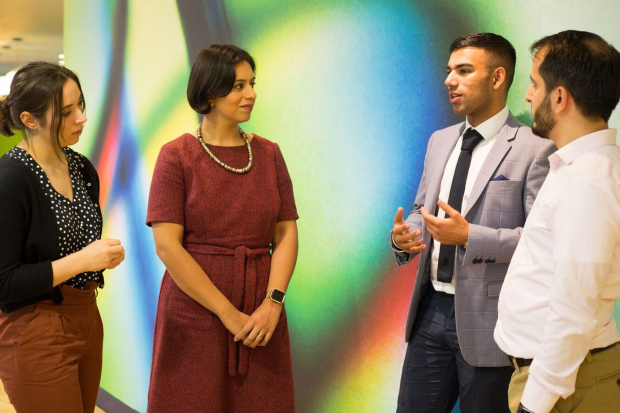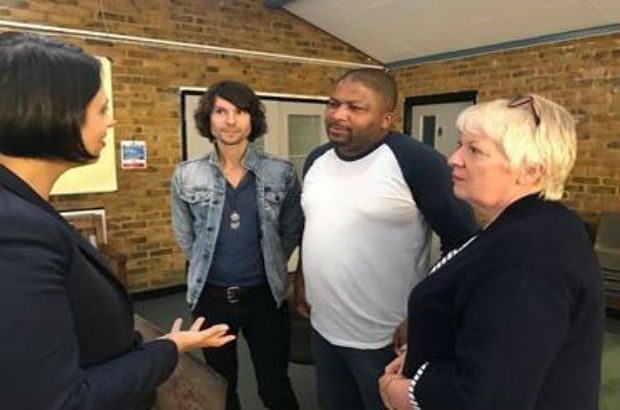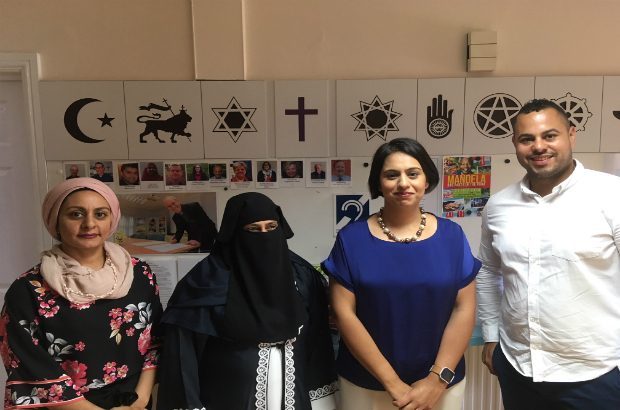 It’s almost time to wish everyone who follows our blog season’s greetings and a happy new year.
It’s almost time to wish everyone who follows our blog season’s greetings and a happy new year.
Before I do, I want to reflect on what has been an incredibly busy, exciting and insightful 10 months since my Commission formally launched as an independent body in March.
Looking back on 2018, there is so much I am proud of and so much I have learnt.
Much of it couldn’t have been done without your support – so a huge thank you from me and from all of us at the Commission.
We began our work with a scoping phase, during which we met more than 400 academics and activists, and visited 13 towns and cities across England and Wales. I wanted to see and hear for myself the concerns that people have about extremism in England and Wales.
I have held roundtables on countering extremism with academics, the public sector and civil society. We also conducted polling and have begun a review of academic literature. Extremism is complex and contested.
On my first day I said engagement would underpin our work and I set out my aim to hear diverse views. I’ve met with free speech campaigners who spoke out against the Counter-Extremism Bill, faith leaders and NGOs representing a range of communities and critics of Government policies such as Prevent.
These passionate conversations have reinforced my view that, especially in an era of polarisation and division, it is vital that we expose ourselves to differing opinions.
I worry that if we fail to do so, we may inadvertently find ourselves in an echo chamber. This requires dialogue; the value of which cannot be over-estimated, especially in challenging extremism.
Former extremists for example shared with me how it was through dialogue with others and being exposed to different viewpoints, that their views changed. It is in this spirit of dialogue and pluralism that I intend to continue these diverse conversations in 2019.
On my first day I also said my Commission would examine all forms of extremism.
That is why I have spoken to Jewish organisations who have highlighted the threat Far Right, hard Left and Islamist extremist that faces them. Muslim groups have described in detail about the impact Far Right extremism is having on them; imams have shared with me the challenges that Islamist extremism, both online and offline present.
I have also spoken to Sikh academics and activists about Sikh extremism as well as non-faith organisations including National Secular Society and British Humanists. These conversations have given a me a richer view of the challenges that exist in our society.

I’ve met with many individuals and groups who are challenging intolerance, hatred and extremism. Their bravery – often in the face of abuse and attacks – is inspiring. Meeting young people involved in countering extremism and hatred gives me optimism.
I have been moved by the passion, energy and compassion displayed by these young people, about the kind of inclusive and tolerant society they would like to live and work towards. There is much we as adults can learn from the younger generation.
The Commission’s work so far has allowed us to make some initial assessments, but it has also revealed to us that there is much we don’t know about extremism. That is why our study, which will be published next year is so important.
Following this scoping phase we published a terms of reference for our study, setting out what we have heard so far, the questions we now need to ask and how we will answer them in our study. We also published an annex which details who we have been meeting.
We explain in our terms of reference that we want to know more about the scale of extremism, the impact it is having on society, the tactics extremists are using and the current response. We also want to see if the Government’s definition of extremism is helpful – and if it isn’t what an alternative could like and how we might get there.
Our evidence gathering work kicked off in Autumn when I wrote to Government departments and independent regulators asking for data on issues related to extremism. I also opened a 10 week call for evidence, the first ever public consultation on extremism– giving everyone concerned about extremism or working on the issue a chance to contribute to the Study.
I want to thank all those who have submitted their experiences, views and evidence. That call for evidence is open until 31st January next year. If you haven’t done so I would encourage you to do so. I want to give everyone a chance to share their views. The findings will form an important part of our study.

Next year we will move into a new phase of evidence gathering; reaching out to individuals and groups we haven’t heard from yet and exploring some crucial issues – including seeking testimonies from those harmed by extremism, working with academics on deep dives into the Far Right and Islamist extremism and visits to communities.
I will be writing more in the New Year about the approach and the steps we will be will be taking.
A special thank you must go to the Commission’s Expert Group who, from when they were first convened in July, have provided me with insightful advice and constructive challenge. With their help, I feel confident that we are building a robust and authoritative Commission that will take us into 2019 and well beyond.
I am also grateful to the current and previous Home Secretaries and other ministers with whom we are in regular touch as we develop our work. I welcome the opportunity to work with politicians from across the spectrum and was delighted to give evidence on extremism to the Home Affairs Select Committee in October.
There are worrying signs of the growing impact of extremism on our rich diversity, our fundamental freedoms and our liberal democracy. We need to do more to counter extremism. But extremism is complex and contested. Which is why the Commission is helping to build our understanding of the problem and improve confidence in challenging it.
In 2019, there is much for me and my Commission to do to help everyone to challenge extremism.
Happy New Year, thank you and I look forward to hearing from you and working with you.
Recent Comments